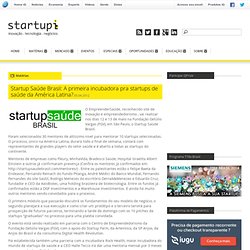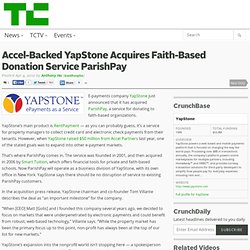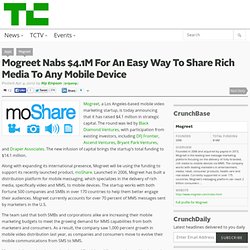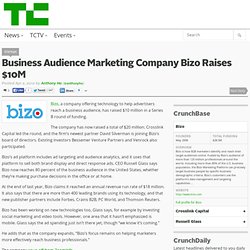

Rede social brasileira Atlz foca em recrutamento de universitários e recém-formados. Startup Saúde Brasil: A primeira incubadora pra startups de saúde da América Latina? O EmpreenderSaúde, reconhecido site de inovação e empreendedorismo , vai realizar nos dias 12 e 13 de maio na Fundação Getúlio Vargas (FGV), em São Paulo, o Startup Saúde Brasil.

Foram selecionados 30 mentores de altíssimo nível para mentorar 10 startups selecionadas. Site de classificados Fisgo recebe investimento do fundo NascenTI, da Confrapar. Cisco to Spend R$1B in Brazil to Fund Tech Center, Startups. (Bloomberg Businessweek) April 2, 2012 – Cisco Systems Inc. (CSCO) said it will spend more than $1 billion reais ($546.6 million) in Brazil in the next four years to boost manufacturing in the South American nation and step up investment in local startups.
The projects include a “center of innovation” in Rio de Janeiro that will be focused on developing technologies for the 2014 World Cup and 2016 Olympics, as well as other products for the surveillance, education and health-care markets, San Jose, California-based Cisco said in a statement today. “With today’s announcements, we reinforce Cisco’s long- term commitment to Brazil and expect to become a relevant partner in this incredible growth journey the country has been experiencing,” Rodrigo Abreu, president of Cisco’s Brazil division, said in the statement.
Cisco is also helping to create a venture-capital fund focused on Brazilian technologies. Cisco made the announcement during its Cisco Plus Brazil event in Rio de Janeiro. Cisco anuncia fundo de Venture Capital de R$50 Milhões para Investir no Brasil. A Cisco anunciou recentemente uma nova estratégia de iniciativas para o Brasil em seu evento Cisco Plus no Rio de Janeiro. No evento estavam presentes o ministro brasileiro de comunicações Paulo Bernardo, o governador do Rio de Janeiro Sergio Cabral, e o prefeito do Rio, Eduardo Paes. Accel-Backed YapStone Acquires Faith-Based Donation Service ParishPay. E-payments company YapStone just announced that it has acquired ParishPay, a service for donating to faith-based organizations.

YapStone’s main product is RentPayment — as you can probably guess, it’s a service for property managers to collect credit card and electronic check payments from their tenants. However, when YapStone raised $50 million from Accel Partners last year, one of the stated goals was to expand into other e-payment markets. That’s where ParishPay comes in. Rumor: Zillow In To Buy RentJuice For $45 Million. Between gossip and rumors and gossip and more rumors, the Silicon Valley day-to-day is so dramatic Bravo is turning it into not one but two TV shows.

No joke. MindMixer Raises $1.9M For Virtual Town Halls, Launches ImproveSF Website. With JOBS Act Becoming Law, Crowdfunding Platforms Look To Create Self-Regulatory Body. Today, President Obama signs the JOBS Act into law, legalizing crowdfunding in startups by non-accredited investors, so that anyone and their mother can invest.

The new law stipulates that entrepreneurs can now raise money from any and all, however, startups are limited to $1 million per year, and must stick to portals approved by the Securities and Exchange Commission. What’s more, the legislation dispenses with the 500-shareholder rule, which put a limit on the number of shareholders a company was allowed before registering with the SEC (and going public).
The new law gives high-growth companies a longer grace period, or on-ramp, leading up to IPOs, and lifts some of the one-size-fits all regulation that likely has been hampering the IPO market. While this is a big win for startups, it puts significant pressure on the crowdfunding market to self-regulate — which is risky. Can Minerva Build An Online Ivy? With $25M From Benchmark & Larry Summers Advising, There’s Hope.
Well, we’ve said it before: Technology is changing education.

It’s flipping the classroom, bringing instructional videos to the masses, and dragging online higher education into legitimacy. Investors have begun to hear the call, as was evidenced today when Benchmark Capital made its largest seed investment to date — $25 million — in a startup/university called The Minerva Project. NEA Leads $33M Round In CRM Developer And Salesforce Competitor SugarCRM.
SugarCRM, a provider of commercial open source CRM software, has completed a $33 million equity and debt financing round.

We’re told around $14 million of the round was equity financing. The investment round was led by New Enterprise Associates and includes participation from new investors Silicon Valley Bank and Gold Hill Capital as well as the company’s current investors Draper Fisher Jurvetson and Walden International. To date, SugarCRM has raised over $60 million in equity funding.
Mogreet Nabs $4.1M For An Easy Way To Share Rich Media To Any Mobile Device. Mogreet, a Los Angeles-based mobile video marketing startup, is today announcing that it has raised $4.1 million in strategic capital.

The round was led by Black Diamond Ventures, with participation from existing investors, including DFJ Frontier, Ascend Ventures, Bryant Park Ventures, and Draper Associates. The new infusion of capital brings the startup’s total funding to $14.1 million. Along with expanding its international presence, Mogreet will be using the funding to support its recently launched product, moShare. PhoneDeck Is A Game Changer For Small Businesses, Divorce Attorneys. I sold mortgages over the phone in a previous life.

That involved calling over 100 people a day using an archaic but functional web-based phone system. That system cost the company a fortune to implement and required a dedicated support staff. PhoneDeck does most of it for free. And it works directly with Android and S40 phones. This is disruption defined. Mike Butcher broke the news about PhoneDeck’s recent launch yesterday. Yapp Raises Funding From Kleiner Perkins To Allow Anyone To Create Mobile Apps For Events. Maria Seidman helps organize a monthly womens’ networking event for her business school alums in New York City but was frustrated with some of the options for creating a dedicated mobile app for an event.

So she decided to create a DIY mobile app creation platform herself. Today, her brainchild, Yapp is launching as an online service where a consumer — even if they lack any technical or design skills — can create a beautiful mobile app in minutes. As Seidman explains to me, she believes that one day everyone will be able to create a mobile app but doesn’t believe that one platform can create apps for everyone and that consumers, developers and even companies need different options for various skill sets. She’s targeting the consumer audience with Yapp, which wants to make it as simple to create an app as it is to create an online invitation. Business Audience Marketing Company Bizo Raises $10M. Bizo, a company offering technology to help advertisers reach a business audience, has raised $10 million in a Series B round of funding.

The company has now raised a total of $20 million. Crosslink Capital led the round, and the firm’s newest partner David Silverman is joining Bizo’s board of directors. Existing investors Bessemer Venture Partners and Venrock also participated. Bizo’s ad platform includes ad targeting and audience analytics, and it uses that platform to sell both brand display and direct response ads. CEO Russell Glass says Bizo now reaches 80 percent of the business audience in the United States, whether they’re making purchase decisions in the office or at home. At the end of last year, Bizo claims it reached an annual revenue run rate of $18 million. WalkMe Walks You Through Websites. A Tel Aviv startup, WalkMe, aims to do for your website what your UX team should have already done: make it easier for your users to understand. The service creates little pop-up bubbles over various points in order to lead your users through a typical interaction, be it a bank website or a complex social tool.
These aren’t videos that run in the corner. Instead, every time you complete an action the system pops up a new bubble for the next step. These interactive bubbles will also help correct mistakes in input. Mobile Social Gaming Company Dragonplay Raises $14M From Accel To Expand To iOS. Dragonplay, a free-to-play social games developer for Android and Facebook, has raised $14 million Series A funding from Accel Partners, Founder Collective and Entrée Capital. The Israeli company was founded in 2010 by Sharon Tal. Dragonplay specializes in multi-platform social game experiences in the cards, casino and board game category and is best known for its Android app Live Holdem Poker Pro. The studio’s games are mainly free-to-play and use in-app purchases of virtual good for monetization. Live Holdem Poker Pro is frequently the top ranked application on Android’s Google Play, and has over 12 million installs with more than 2 million monthly active players.
More Developments For Amazon’s In-App Payment System For Appstore, But More Work Needed. When we interviewed Ray Anderson, the CEO of mobile payments company Bango last month and asked him when we would see one of its key customers, Amazon, roll out its own mobile payment service, his cool answer was “in due course.” A report out today from Bloomberg points to the company getting warmer on the idea. Bloomberg writes that app publishers have been trialling Amazon’s payment service for around the last month. The service covers both one-off purchases as well as subscriptions through apps. And, like Google and Apple, Amazon is taking a 30 percent commission on payments made using the platform. The Story of Skout: From Deadpool’s Door to $22M Led By Andreessen Horowitz.
Eighteen months ago, it looked like the location wars were over. Foursquare had just closed a $20 million Series B round and rivals like Gowalla, Loopt and Brightkite weren’t having the same buzz or traction. Meanwhile, Christian Wiklund’s company Skout was down to a skeleton crew of three people after burning much of the $4.6 million it had raised since being founded in 2007. “We were close to going under. We had no traction,” Wiklund said. YouDazzle Launches As A Simple File Sharing And Web Meeting Platform For SMBs. A new startup, YouDazzle, is taking on the file sharing space today with the launch of its cloud-based collaboration, storage and online meeting platform.
RR Donnelly Invests $2.5M In CoffeeTable To Bring Retail Catalogs Into The Tablet Age. RR Donnelley isn’t a name you see very often in TechCrunch, but companies don’t survive for nearly 150 years without having one eye trained on the future. With 2011 revenues at an estimated $10.6 billion, the company is one of the world’s largest commercial printers. The printing giant has been stepping up its digital investments of late, and today announced that it has invested $2.5 million in Real Value Corporation, the makers of iPad shopping app, CoffeeTable.
The Series A investment is the first tranche of a larger investment by RR Donnelley and includes an exclusive marketing relationship between the two companies. Gamification Platform BigDoor Raises $5 Million From Foundry Group. White label gamification platform BigDoor has raised $5 million in new funding led by existing investor Foundry Group, bringing BigDoor’s total funding to $13 million. The Tap Lab Raises $550K To Seed Some Hits in Location-Based Mobile Gaming. YC, Rock Health-Backed Agile Diagnosis Launches To Help Doctors Better Treat Their Patients. Wrapp races to outpace DropGifts with German launch. The race is on. Second Prize Is A Set Of Steak Knives: MarGenius Is A Social Network For Networkers. So you’re in town to follow up on some weak leads and your boss says you’ve got to stay put for a few more days because there’s an old lady out near Patton Road who is looking to buy and you call back and say you got to get back to HQ for some paperwork and your boss says “Make the most of it.”
The only thing that counts in this world, friend, is getting them to sign on the line which is dotted. Funding Circle, a Kickstarter for SMBs, Picks Up $16M From Index, Union Square Ventures. Tandem: Mobile Accelerator Unveils Inaugural Batch, Gives Sneak Peek At Round Two. 2tor Raises $26M D Round To Put Online Degrees In The Same Class As Their On-Campus Rivals.